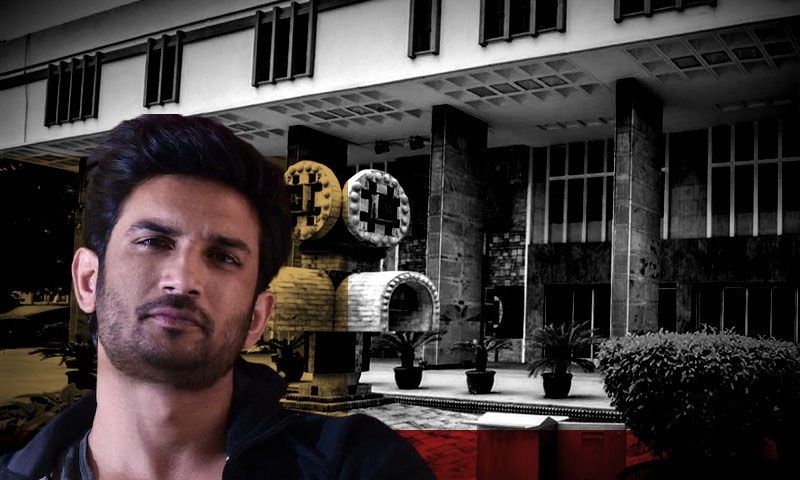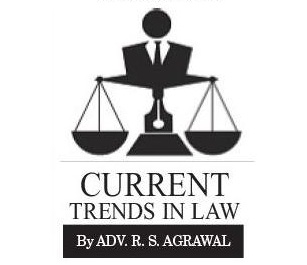No Right To Privacy Post-Death
| Date :21-Jun-2021 |

By Adv. R. S. Agrawal :
According to the HC, without knowing the contents of the said film and only by relying on some news articles, the plaintiff cannot argue that the depiction in the films is intended to be tarnished by the defendants. The Court found no prima facie case in favour of the plaintiff’s tort action for defamation and is impelled to reject the prayer for injunction.

BY IMPLICATION through a recent judgement of the case- Krishna Kishore Singh V. Sarla A. Saraogi & Others, delivered on June 10, 2021, at the Delhi High Court, Justice Sanjeev Narula has held that both, the right to privacy and or publicity are not available to a person after his death. These rights are not inheritable and cannot be claimed by his/her parent or other kin post-death. Through this application, the plaintiff, who is the father of late actor Sushant Singh Rajput (SSR) had sought ad-interim ex-parte injunction against the named and unnamed defendants from using his son’s name, caricature, lifestyle or likeness in forthcoming films and other ventures, contending that any such publication, production or depiction would be an infringement of personality rights, right to privacy which includes right to publicity, cannot be undertaken without the prior approval of his legal heir; and violation of right of fair trial-under Article 21 of the Constitution of India. It was argued on behalf of the defendants that I the context of the reasoning in the Judgement of the case – Justice K. S. Puttaswamy v.
Union of India-(2017) 10 SCC 1, if the right to privacy extinguishes with the human being, the only necessary corollary is that right to publicity would also extinguish and would not survive after the death of the person. In the opinion of the Delhi High Court, having said that whether commercial celebrity rights, such as personality or publicity rights would survive or extinguish after the death of the celebrity, requires a deeper probe. In the absence of codified laws protecting such rights, the common law which govern such rights has to be analysed. Moreover, additional questions emerge, such as whether personality/publicity right is a property, being part of the estate/assets of the deceased, as a concept detached from the theory of dignity, or can it only be harmonised with the right of privacy, from where it originated. Such enquiries would first require evidence to be led by the plaintiff to prove that the persona of the SSR is still surviving as a commercial property, which is alleged to be exploited by the defendants for profit.
The foundational facts have to be established and proved and mere status of a celebrity is not enough. Even in a passing-off action- a remedy available under common law- the plaintiff is required to satisfy the Classical Trinity, which postulates that in order to prove passing off, the plaintiff must prove: 1. Goodwill or reputation attached to his goods or service; 2. Existence of misrepresentation by defendant to the public which is likely lead the public to believe that the goods and services offered by defendant are that of the plaintiff; and 3. Existence of loss or the likelihood of damage to the plaintiff’s goodwill. The High Court prima facie did not find any element to hold that the film would lead the public to believe that it is a true story or biopic that has been endorsed or authorised by the plaintiff. Pertinently, once the disclaimer is included at the beginning of the cinematograph film, any apprehension that the Plaintiff has about passing off that the film is a biopic of SSR, will be put to rest. Furthermore, in this case, anything associated with SSR is not being exploited by applying to any merchandise as t-shirts, toys, posters, mugs, etc so as to evoke his persona. The defendants are not making any misrepresentation or claiming a false endorsement for their respective films.
They represent their work to be fictional, that is, neither a biopic nor based on true events. For these reasons, the plaintiff could not convince the Court on the point of infringement of celebrity rights. The HC has pointed out that the directions issued by the Bombay High Court in its order in the case – Nilesh Navalakha & Others v. Union of India-2021 SCC OnLine Bombay 56 are already in force. Though in this case, the petitioner, being the informant/complainant, is claiming right to fair trial, but no foundation has been set up to demonstrate as to how the films would impair the fairness in investigation or trial. It must be remembered that the investigating agencies or judicial system do not rely on cinema films for the purpose of investigation or judicial pronouncements. They have to decide issues by drawing their own references and conclusions based on the materials placed before them, in accordance with the law. The films in question are not documentaries, but work of fiction. The Court does not find any reasonable ground to believe that the danger apprehended by the plaintiff is real or imminent. The two-pronged test of necessity and proportionality, as recognised and applied by the Court in the case of Dr Shashi Tharoor v. Arnab Goswami-2017 SCC OnLine Delhi 1249 has not been satisfied.
The cause of action for asserting right of fair trial herein seems to be based on unreasonable apprehension and vague possibilities. The defendants’ right to present their fictional stories, in the opinion of this HC, cannot be curbed purely on an unsubstantiated hypothesis, and no gag order can be issued. According to the HC, without knowing the contents of the said film and only by relying on some news articles, the plaintiff cannot argue that the depiction in the films is intended to be tarnished by the defendants. The Court found no prima facie case in favour of the plaintiff’s tort action for defamation and is impelled to reject the prayer for injunction, in light of the law laid down in the judgement of the case –Melepurath Sankumi Ezhussan v. Theketill v. Gopalankutty Nair –AIR 1986 SC 411 that the civil wrong or tort action based on defamation is in persona and would not survive the death of the complainant. If the events that form the subject matter of the film are in the public domain, in terms of there being prior reporting of the matter in controversy, the Court did not find any justification to restrain publication of work that is claimed to be fictional and only draws inspiration from such events.
The court has pointed out that breach of privacy has not been asserted on the ground of defamation. It is founded primarily on the commercial exploitation of the personality of the celebrity, which can be adequately by award of damages/compensation. The High Court has held that the plaintiff has failed to establish a prima facie case. In its opinion, there is merit in the contention of the defendants that plaintiff’s action is belated. SSR had passed away on June 14, 2020, and regarding this, the news was widely circulated. Production of the said film was announced in August, 2020. The plaintiff approached the Court and filed this suit very close to release of the film. For this reason the balance of convenience lies entirely in favour of the defendants. The Court has stated that in case, if there is change in circumstances, plaintiff can always re-apply for injunction and he can be compensated by awarding damages. To ensure that, the Court has directed the defendants to render true and complete accounts of the revenue earned from the films by way of sale/licencing of all rights relating to the films.